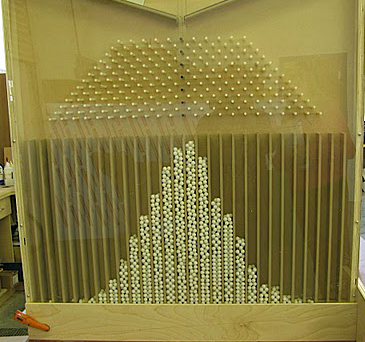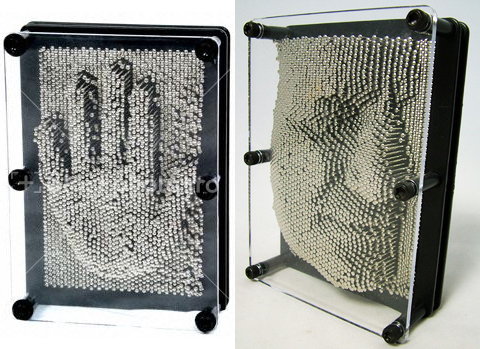I have an idea to design a type of
Galton's Board
to "draw" a relief map of a given two-dimensional function $z=f(x,y)$.
A typical Galton's Board drops, say, ping-pong balls through a series
of evenly spaced pins into vertical bins to demonstrate that the
balls distribute according to the binomial distribution, approximating
the normal distribution:

(See this
this link
for an animation.)
First I would like to generalize this design to approximate an arbitrary function $y=f(x)$, which leads to my first question:
Q1. Which class of functions can be represented as a convex combination of normal distributions?
I know these functions are called mixture distributions, but I have not found a description of the total class representable. I am hoping that (say) any smooth function can be approximated.
Q2. Given a function $f(x)$ to approximate, how could one work backward to a pin distribution that would realize the approximation?
The result would be a type of user-designed Pachinko machine.
Q3. Can the above be generalized to two-dimensional functions $f(x,y)$?
Presumably the answer is Yes. If so, one could imagine
a potentially mesmerizing
Museum of Math
display in which some famous visage emerges slowly as a ping-pong relief map.

Q4. This final thought raises the question of which mathematician's face would be simultaneously
most appropriate and most recognizable. :-) Sir Francis Galton is certainly appropriate...
